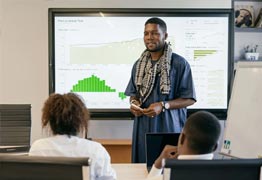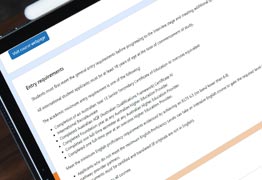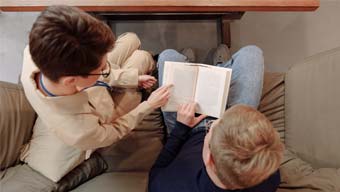We're moving! This site will be relocating to goingto.university in 2026. Please update your bookmarks to the new address.

Choosing to study overseas is an exciting but potentially daunting decision, here at StudyLink we have compiled the key advice to help you make the best decision for your education and start your International study adventure.

Learn more about Erasmus Mundus joint Master Degree programmes, which give international students the chance to study across multiple european countries.

In this article we look at how to approach choosing where in the world you would like to study.

Working whilst you study abroad can help you with your budget during your studies, but you should be aware of the rules governing working abroad where you are studying.

If you are planning to study abroad, starting your dream course can be made much easier by using an education agent to help you with your application.

We look at popular study abroad destinations to find what accommodation options you can expect when studying abroad.

This article provides some actionable advice that will make presenting easier whilst you’re studying abroad.

StudyLink.com take a detailed look into the costs of studying abroad and all the aspects that you should budget for when embarking on your studies.

We examine the differences between the traditional British degree classification system and the GPA.

No matter what exams your are sitting, here are some great ways to help yourself prepare for your exams and achieve the best results possible.

The Bologna Process encourages student mobility by providing common tools for universities across European members.

Lots of students want to a greater understanding of course admission requirements and how to find them.

We answer 10 common questions about applying for a student visa to help make your visa application quick and easy.

How to choose a course that fits you? Check our top tips on choosing which course is best for you to help you make an informed decision.

International students finding it difficult to meet conditions of eligibility criteria can choose to enrol in pre-masters courses before applying for a masters degree programme.

Read more about Graduate Certificates, including what they are, why you should study one, how much they cost and how to apply for one.

Find out more about international student visas for studying abroad, as well as how, where and when to apply for yours.

When choosing where you want to study, you may wish to consider the university rankings. There are several reasons that these rankings can be helpful for your time at university and beyond.

Read more about studying abroad, and how it can boost your future career prospects.

Read StudyLink’s suggestions on your first steps when deciding where to study abroad, with helpful tips to make your decision easier.

Read about what culture shock and homesickness are, and how you can help yourself to deal with them when choosing to study abroad.

Find out more about English language tests, your options and what is required as an overseas student.

Find out more about funding and scholarships for international students, and what financial assistance might be available to you.

Find out more about the League of European Research Universities, including which universities are members, and how to you can study at one of them.

Find out more about which European cities are the safest study abroad destinations for international students, and where in the region they are located.

Find out more about the Ivy League Universities, including which universities are members, and how you can study at an Ivy League University.

The Group of Eight (Go8) is a group of prestigious Australian universities with a shared focus on providing world-class faculty and research facilities to improve academic standards across Australian university education.

Read about how the ECTS credit system works, why it is useful, and how the credits are converted between institutions.
Learn more about the types of courses that you can study by reading our StudyLink Subject Guides and browse the courses that match your interests.
Find out more choosing a subjectRead detailed guides for every popular study destination and country containing information about the country, the living and study costs as an international student, study visas, languages, information about each city and comprehensive list of universities and colleges.
Find out more about choosing a countryJoin the StudyLink email list and never miss a chance to turn your study abroad dreams into reality!

The latest articles from study abroad providers and StudyLink.com to hep you on your study abroad journey.
See more articles